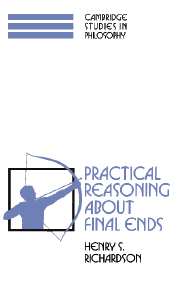VI - Is commensurability a prerequisite of rational choice?
Published online by Cambridge University Press: 05 June 2012
Summary
The aim of avoiding value conflicts (on which more in Chapter VII) provides a strong motivation to systematize and unify our practical and moral concerns. The task for the current chapter is to show that despite this, there is no need for this systematization to take the form of unification around a single commensurating standard. More generally, I will argue that rational choice even within a limited domain does not require a partial commensurability that applies to that domain. By “commensurability,” as applied to values or goods, I will henceforth generally have in mind the sort of deliberative commensurability defined in §16. I will argue that such commensurability is not necessary even if systematization is. In the present chapter I will simply diagnose the narrow-mindedness that leads many to think that commensurating is the only rational way to systematize. It will be the task of Chapters VII–X to develop the alternative mode of systematizing.
THE ARGUMENT THAT COMMENSURABILITY IS A PREREQUISITE OF RATIONAL CHOICE
Suppose, to adapt one of Kant's examples, that you have to decide between continuing to listen to an enlightening philosophy lecture and departing to join your family for dinner (Kant 1956, I.I.i.3, Ak. 23). Can you arrive at your decision rationally without finding a way to commensurate the values involved? It seems to be widely assumed, both among philosophers and popularly, that you cannot.
- Type
- Chapter
- Information
- Practical Reasoning about Final Ends , pp. 119 - 142Publisher: Cambridge University PressPrint publication year: 1994



